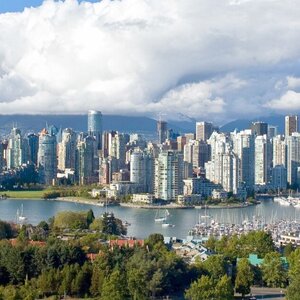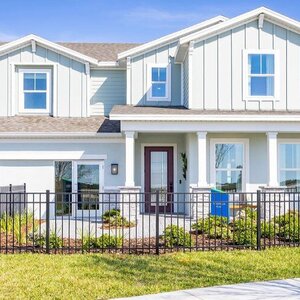The WPJ
THE WORLD PROPERTY JOURNALReal Estate Facts Not Fiction
Residential Real Estate News

Paris Named Top Global Prime Residential Market for 2020, Berlin and Miami Close Behind
Residential News » Paris Edition | By Michael Gerrity | December 6, 2019 8:30 AM ET
According to a new report by global real estate consultant Knight Frank, with capital growth in most prime residential markets around the world shrinking in 2019, the global economic landscape looks markedly different from that a year ago.
In 2018, economists predicted 'the new normal' - that of higher interest rates and more expensive debt - yet it failed to materialize. Instead, Knight Frank has seen interest rate cuts globally in the last year, with quantitative easing (QE), once an extraordinary measure, now back on the agenda in the US and the Eurozone.
With interest rates remaining lower for longer, property's attraction has been reinforced. Yet, at the prime end of the market, particularly in the world's top tier cities, sales volumes largely drifted lower during 2019.
Prime price growth also stumbled in 2019 across many cities. The Knight Frank Prime Global Cities Index, which tracks the movement in prime prices across 45 cities worldwide, is mirroring global economic growth. The average annual rate of growth in the year to Q3 2019 was 1.1%, meaning prime prices are rising at their slowest rate in a decade.
Key report findings:
Paris leads Knight Frank's prime residential forecast for 2020 with price growth of 7%; economic stability, low interest rates, constrained prime supply and strong tenant, as well as second home demand, will underpin price growth. Home to Europe's largest infrastructure initiative, the Grand Paris Project, as well as the 2024 Summer Olympics, both events will provide further stimulus.
In second place, sit Berlin and Miami. Knight Frank expects both markets to see prime price growth of 5% in 2020 but for different reasons. Sound fundamentals - strong demand (domestic and international) and significant regeneration - will keep Berlin high in the rankings despite the proposed rent cap.
In Miami, the city will benefit from the continued momentum from the State and Land Tax (SALT) tax deduction. At 4%, Geneva and Sydney are both seeing prime price growth recover having dipped in recent years. Confidence in both residential markets has returned due to lower interest rates and a limited supply pipeline.
Both cities are also the recipients of significant transport investment; the Leman Express (CEVA) in Geneva and in Sydney, the CBD & South East Light Rail.
The next grouping can be defined as steady yet sustainable. Although at different stages of their market cycles Knight Frank expects Madrid, Singapore and Melbourne, to register price growth of 3% in 2020 with international inquiries (Madrid), redirected capital outflows (Singapore) and a lower interest rate environment (Melbourne) shoring up demand.
In Los Angeles, Knight Frank's forecast of 2% hides a complex picture. Below US$2 million the market is active with strong demand for quality properties, above US$10 million the market is slow, patchy at best, whilst the mid-segment US$2- US$10 million is registering moderate price appreciation.
Against a tumultuous political backdrop, Knight Frank expects Hong Kong's luxury segment to see largely static prime prices (0%) in 2020. Research shows the Hang Seng Index leads the mass residential market by three to six months but luxury prices are largely resilient with a weak correlation to both GDP and equities. A number of high-end transactions in The Peak in 2019 would support this argument.
For Mumbai (-1%) the economic environment deteriorated in 2019 influencing market liquidity, this was further exacerbated by an additional 1% stamp duty taking the total to 6%. Knight Frank believes prime buyers to remain cautious in 2020. In London, all eyes are on the General Election, Knight Frank's 2% forecast from a year ago will be updated once the final outcome and the future timetable in relation to Brexit. For now, the indication is that pent-up demand is building - for every new property listed in prime London in September, 14 new prospective buyers registered with Knight Frank, the highest level in more than ten years.
For Dubai (-2%), 2020 marks a landmark year when it will host Expo 2020. Forecast to attract 25 million visitors, the city has seen significant investment in new infrastructure in the lead up to the event, such as the expansion of the Metro Line. These changes, along with the introduction of long-term visas of up to 10 years, will boost prime demand.
In New York (-3%), Knight Frank expects lower mortgage rates and strong employment indicators to start to cancel out the high completion rates seen in recent years.
Despite sitting at the bottom of Knight Frank's rankings for 2020, Vancouver's -5% decline in prime prices reflects an improving scenario. Prime prices have been falling at a rate of 15% per annum but shrinking inventories, along with a gradual adjustment to the property market regulations, are seeing a slow recovery in buyer sentiment.
In 2018, economists predicted 'the new normal' - that of higher interest rates and more expensive debt - yet it failed to materialize. Instead, Knight Frank has seen interest rate cuts globally in the last year, with quantitative easing (QE), once an extraordinary measure, now back on the agenda in the US and the Eurozone.
With interest rates remaining lower for longer, property's attraction has been reinforced. Yet, at the prime end of the market, particularly in the world's top tier cities, sales volumes largely drifted lower during 2019.
Prime price growth also stumbled in 2019 across many cities. The Knight Frank Prime Global Cities Index, which tracks the movement in prime prices across 45 cities worldwide, is mirroring global economic growth. The average annual rate of growth in the year to Q3 2019 was 1.1%, meaning prime prices are rising at their slowest rate in a decade.
Key report findings:
- Paris leads Knight Frank's prime residential forecast for 2020 with price growth of 7%. Stable economy, low interest rates, constrained prime supply, strong tenant and second home demand will underpin prime price growth.
- In second place sits Berlin and Miami, where Knight Frank expects to see prime price growth of 5%. Strong demand and significant regeneration will keep Berlin high in the rankings. In Miami, Knight Frank expect the city to benefit from continued momentum from the State and Land Tax deduction.
- At 4%, Geneva and Sydney are both seeing prime price growth recover having dipped in recent years. Confidence has returned due to lower interest rates and limited supply. Both cities are recipients of significant transport infrastructure.
- Knight Frank expects to see Madrid, Singapore and Melbourne to register price growth of 3%. International inquiries (Madrid), redirected capital outflows (Singapore) and a lower interest rate environment (Melbourne) shoring up demand.
- In LA, forecast of 2% hides a complex picture. Below US$2m the market is active with strong demand for quality properties. Above US$10m, the market is slow.
- From the interminably tedious Brexit negotiations to the US/China trade tensions, Hong Kong protests and climate change, the level of uncertainty ramped up in high gear in 2019. But what about 2020?
Paris leads Knight Frank's prime residential forecast for 2020 with price growth of 7%; economic stability, low interest rates, constrained prime supply and strong tenant, as well as second home demand, will underpin price growth. Home to Europe's largest infrastructure initiative, the Grand Paris Project, as well as the 2024 Summer Olympics, both events will provide further stimulus.
In second place, sit Berlin and Miami. Knight Frank expects both markets to see prime price growth of 5% in 2020 but for different reasons. Sound fundamentals - strong demand (domestic and international) and significant regeneration - will keep Berlin high in the rankings despite the proposed rent cap.
In Miami, the city will benefit from the continued momentum from the State and Land Tax (SALT) tax deduction. At 4%, Geneva and Sydney are both seeing prime price growth recover having dipped in recent years. Confidence in both residential markets has returned due to lower interest rates and a limited supply pipeline.
Both cities are also the recipients of significant transport investment; the Leman Express (CEVA) in Geneva and in Sydney, the CBD & South East Light Rail.
The next grouping can be defined as steady yet sustainable. Although at different stages of their market cycles Knight Frank expects Madrid, Singapore and Melbourne, to register price growth of 3% in 2020 with international inquiries (Madrid), redirected capital outflows (Singapore) and a lower interest rate environment (Melbourne) shoring up demand.
In Los Angeles, Knight Frank's forecast of 2% hides a complex picture. Below US$2 million the market is active with strong demand for quality properties, above US$10 million the market is slow, patchy at best, whilst the mid-segment US$2- US$10 million is registering moderate price appreciation.
Against a tumultuous political backdrop, Knight Frank expects Hong Kong's luxury segment to see largely static prime prices (0%) in 2020. Research shows the Hang Seng Index leads the mass residential market by three to six months but luxury prices are largely resilient with a weak correlation to both GDP and equities. A number of high-end transactions in The Peak in 2019 would support this argument.
For Mumbai (-1%) the economic environment deteriorated in 2019 influencing market liquidity, this was further exacerbated by an additional 1% stamp duty taking the total to 6%. Knight Frank believes prime buyers to remain cautious in 2020. In London, all eyes are on the General Election, Knight Frank's 2% forecast from a year ago will be updated once the final outcome and the future timetable in relation to Brexit. For now, the indication is that pent-up demand is building - for every new property listed in prime London in September, 14 new prospective buyers registered with Knight Frank, the highest level in more than ten years.
For Dubai (-2%), 2020 marks a landmark year when it will host Expo 2020. Forecast to attract 25 million visitors, the city has seen significant investment in new infrastructure in the lead up to the event, such as the expansion of the Metro Line. These changes, along with the introduction of long-term visas of up to 10 years, will boost prime demand.
In New York (-3%), Knight Frank expects lower mortgage rates and strong employment indicators to start to cancel out the high completion rates seen in recent years.
Despite sitting at the bottom of Knight Frank's rankings for 2020, Vancouver's -5% decline in prime prices reflects an improving scenario. Prime prices have been falling at a rate of 15% per annum but shrinking inventories, along with a gradual adjustment to the property market regulations, are seeing a slow recovery in buyer sentiment.
Sign Up Free | The WPJ Weekly Newsletter
Relevant real estate news.
Actionable market intelligence.
Right to your inbox every week.
Real Estate Listings Showcase
Related News Stories
Residential Real Estate Headlines
- Las Vegas Area Home Prices Uptick 4.3 Percent Annually in March
- Single-Family Rent Growth in U.S. Trends Upward in 2025
- U.S. Mortgage Rates Tick Down Post Trump Tariffs Commencement
- President Trump's 'Liberation Day' Tariffs Potential Impact on the U.S. Housing and Mortgage Markets
- Baby Boomers Biggest Cohort of U.S. Home Buyers in 2025 as Millennials Decline
- U.S. Monthly Housing Payments Hit Record High in 2025
- U.S. Pending Home Sales Uptick in February
- Global Prime Residential Rent Slowdown Continued in Late 2024
- Ireland Home Price Inflation Hits 8 Year High in Early 2025
- Existing Home Sales in America Uptick in February
- Great Miami Area Residential Sales Decline 15 Percent Annually in February
- Mortgage Rates Uptick in Mid-March, Ending 9-Week Decline in U.S.
- World Property Ventures Builds the Future of Real Estate with New Funding Round
- U.S. Builder Sentiment Declines Amid Economic Uncertainty and Rising Costs
- Black Homeownership Rates in U.S. Enjoy Largest Annual Increase of All Racial Groups
- Wealthy Renters Are Taking Over More of the U.S. Rental Market
- If U.S. Congress Does Not Extend NFIP Soon, Thousands of Daily Home Closings Impacted
- U.S. Mortgage Applications Spike 11 Percent in Early March
- Greater Palm Beach Area Residential Sales Rise in Early 2025
- New Apartments in U.S. Are Leasing at Slowest Pace on Record
- U.S. Mortgage Rates Drop to 4 Month Low in March
- Overall U.S. Mortgage Delinquency Rates Dip in December
- New Tariffs on Canada, Mexico to Impact U.S. Homebuilder Input Costs
- Monaco's Property Market: A Tale of Two Cities
- U.S. Home Purchase Cancellations Surge, 1 in 7 Sales Getting Canceled
- U.S. Pending Home Sales Hit Historic Low in Early 2025
- Greater Miami Area Residential Sales Dip in January
- Governor DeSantis Supports Ending Property Taxes in Florida
- WPV Aims to Become the Berkshire Hathaway of Real Estate Tech
- U.S. Home Sales Slump Continues in January
- Average Americans Spend 38 Percent of Monthly Income on Mortgage Payments
- Switzerland's Safe-Haven Appeal Grows with World's Wealthy Homebuyers
- U.S. Builder Confidence Rapidly Declines in February
- Las Vegas Home Sales Rise 6.7 Percent Annually in January, Condo Sales Dip
- Homebuyer Demand in America Drops to 5-Year Low in Early 2025
- Ownership More Affordable Than Renting in Most U.S. Markets
- The World's First Global Listings Service Launches, Called a GLS
- Home Prices Continue to Rise in 89 Percent of U.S. Metros in Late 2024
- Global Luxury Residential Prices Showed Gradual Improvement in Late 2024
- U.S. Construction Hiring Rate Drops to Lowest Levels in 5 Years
Reader Poll
Marketplace Links
This website uses cookies to improve user experience. By using our website you consent in accordance with our Cookie Policy. Read More





